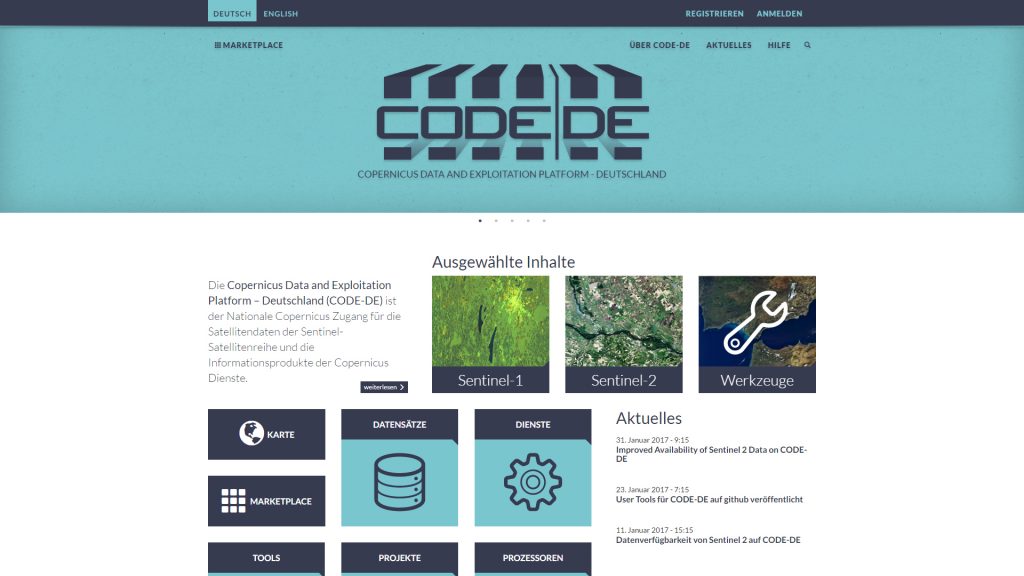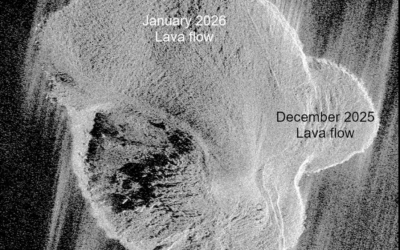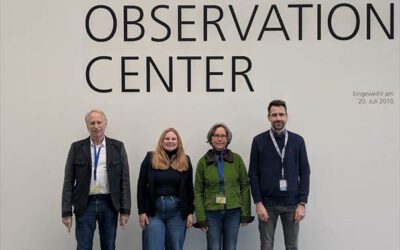 Our colleagues at DLR released a platform which allows easy and free of charge access to Sentinel remote sensing data:
Our colleagues at DLR released a platform which allows easy and free of charge access to Sentinel remote sensing data:
CODE-DE makes possible free-of-charge, simple access to data from the Sentinel satellites and to information products from the European Copernicus programme–including an up-to-date cloud-free mosaic of Germany, produced at EOC. The platform will also provide access to national geodata infrastructure (GDI-DE). This portal provides harmonised and standardised German geodata from a wide variety of sources. By agreement with industrial partners it is also planned to offer data from the German radar satellites TerraSAR-X and TanDEM-X as well as high-resolution optical images from RapidEye satellites.
CODE-DE offers a one-stop shop. The data is collected in a single portal so that users no longer have to search through various databases, as formerly. This gives them direct access to an enormous amount of data—the Sentinel satellites alone will produce a data volume of some 50 petabytes by the end of 2020.
read more: http://www.dlr.de/eoc/en/desktopdefault.aspx/tabid-11932/20674_read-48811/








